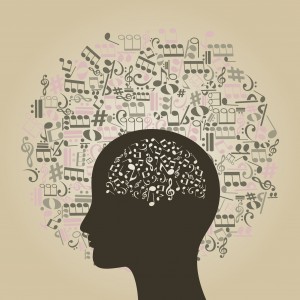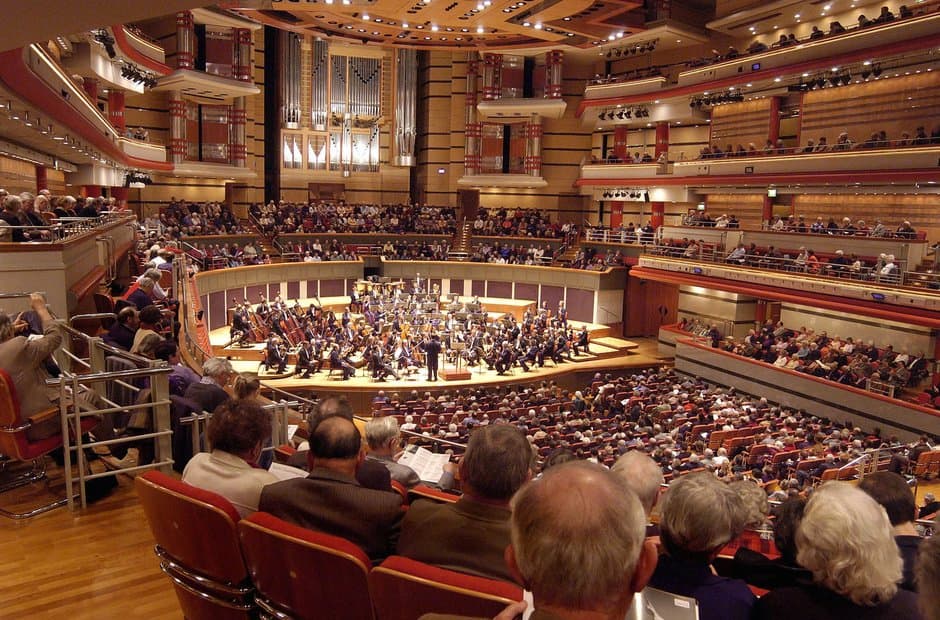
Credit: http://www.austinmusictherapy.com/
Music can arouse very powerful emotions. Psychologists suggest that there is something about the way music unfolds over time, as do emotions, and that when we hear music we re-live the emotional sequence that happened the first time we heard it. This makes music so much more powerful than a smell or a painting: it draws us into a very special sequence of relived experiences. Music also raises our expectations, simply by granting or delaying a bar or beat in a piece, or by leaving a harmonic progression unresolved. We would not be moved by music that always fulfils our expectations; our emotions are at their highest when we are un-expected and when we experience the wonderful delayed gratification that music brings. An abrupt shift of harmony, the dramatic entrance of a soloist, changes in tempo – all these factors can induce a frisson in us, and it is these startling changes in music which have an amazing power to move us, to awaken emotions from ecstasy to deep sadness, or recall significant moments in our lives. Performers too can manipulate the way we experience music, and thus influence our emotional response, through the use of rubato, delayed stresses or accents, the voicing of certain chords, texture, tempo, dynamics and even the performer’s physical gestures.
Mahler: Symphony No. 5 in C-Sharp Minor
IV. Adagietto
Certain pieces have seeped into our collective consciousness: Richard Strauss’s ‘Also Sprach Zarathustra’ is synonymous with space travel after it was used in Stanley Kubrick’s film ‘2001: A Space Odyssey’, even for those people who are too young to remember the film or the Apollo moon landings. Then there is the Andante from Mozart’s Piano Concerto No. 21, often simply called ‘Elvira Madigan’ after the 1967 Swedish film of the same title in which the music memorably features, or the Adagietto from Mahler’s Fifth Symphony (‘Death in Venice’). Or ‘Nimrod’, from Elgar’s Enigma Variations. Hear just a few bars and one instantly thinks of poppies, the First World War and the annual, sombre ceremony at the Cenotaph in London on Remembrance Sunday. And – dare I mention it? – ‘Nessun Dorma’, now forever associated with excitement of international football. We are constantly bombarded with soundtracks and jingles, musical tags and cover versions, all of which can induce an unexpected “tingle” in us, for this response is not limited to classical music.
There’s also a scientific explanation for the “tingles” which music induces in us. When the music strikes the right chords or harmonies, our bodies make a measurable physiological response: the heart rate increase, the pupils dilate, the body temperature rises, blood moves to the legs and the cerebellum, the “control centre” of body movement, becomes more active. The brain flushes with dopamine, a neurotransmitter, which causes the tingle. This is because music stimulates an ancient pathway in the brain which is activated by rewards, addiction, emotion and motivation: in short, music can affect the brain in the same way as sex, drugs or eating chocolate!
Not everyone experiences tingles when listening to music, and scientists have found that people who possess a personality trait called Openness to Experience tend to experience music more profoundly. Such people have unusually active imaginations, enjoy new experiences, are emotionally intelligent, empathetic, appreciate beauty and nature, seek out new experiences, and love variety. When listening to music, they are able to make mental predictions about the way the music is going to unfold, or engage in vivid musical imagery, and because they are likely to immerse themselves more deeply in the music they are hearing, their response – their “tingle factor” – is more intense.
Regardless of the neuroscience, we all have pieces of music in our personal back-catalogue which are very special to us. Tucked away in the recesses of our minds, these pieces can induce a powerful tingle of recollection, a sort of musical “Proustian Rush” if you will, which can evoke strong memories and take us back to a certain place or significant point in our lives. We should never underestimate the power of music!
Handel: Zadok the Priest




